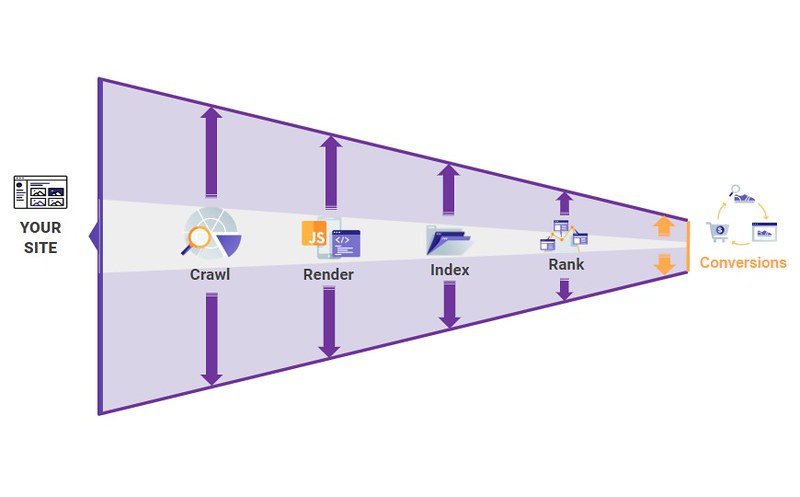In a vast and ever-evolving digital landscape, where billions of webpages compete for attention, unlocking the power of long-tail keywords and niche markets has become paramount. Like hidden treasures waiting to be discovered, these often-overlooked gems hold the key to unlocking untapped potential and unprecedented success. With a creative and strategic approach, mastering the art of diving into the depths of long-tail keywords and niche markets can lead to a world of endless possibilities for businesses and individuals alike. So, buckle up and prepare to embark on a journey that will revolutionize your understanding of SEO, catapult your online presence, and propel you ahead of the crowded field. It’s time to harness the power of the underdogs and embrace the extraordinary results awaiting those courageous enough to venture into the realm of long-tail keywords and niche markets.
Table of Contents
- Embracing the Potential: Understanding Long-Tail Keywords and their Impact on SEO
- Targeting the Untapped: Uncovering the Benefits of Niche Markets for Business Growth
- Crafting Compelling Content: Leveraging Long-Tail Keywords to Engage Audiences
- Driving Organic Traffic: Effective Strategies to Optimize for Long-Tail Keywords and Niche Markets
- Q&A
- To Wrap It Up

Embracing the Potential: Understanding Long-Tail Keywords and their Impact on SEO
Long-tail keywords and niche markets may sound like complex jargon, but they hold the key to unraveling the true power of search engine optimization (SEO). To put it simply, long-tail keywords are specific and targeted phrases that users search for online. Unlike generic keywords that attract a large pool of competitors, long-tail keywords help narrow down the search results to a more niche audience. Think about it as the difference between searching for “best running shoes” versus “best long-distance running shoes for flat feet.” The latter is more specific and caters to a particular group of people, offering a higher chance of conversion.
So, you might be wondering why long-tail keywords are so important for SEO. Well, let’s dive deeper into their impact. Firstly, incorporating long-tail keywords into your website’s content can significantly boost your organic traffic. As these keywords target a specific audience, they attract users who are actively searching for exactly what your site offers. This means higher visibility and a better chance to connect with interested users. Secondly, long-tail keywords often have less competition compared to generic keywords. This gives you a better chance to rank higher on search engine result pages (SERPs) and stay ahead of your competitors. With less competition, you can establish your authority in a particular niche and become a go-to resource for users seeking specialized information or products. So, whether you’re a beginner or an experienced SEO enthusiast, embracing the potential of long-tail keywords is a game-changer that can unlock the true power of your website’s visibility and success.
Targeting the Untapped: Uncovering the Benefits of Niche Markets for Business Growth
When it comes to business growth, many entrepreneurs focus on targeting large, general markets to maximize their reach. However, they often overlook the untapped potential of niche markets. These specialized segments of the market may be smaller in size, but they offer unique advantages that can propel a business to new heights.
One of the main benefits of targeting niche markets is the ability to stand out from the competition. By focusing on a specific audience with shared interests or needs, you can tailor your products or services to meet their exact requirements. This personalized approach not only sets you apart from generic competitors but also creates a strong sense of loyalty among your niche customers. They are more likely to choose your brand over others because you understand their specific pain points and offer tailored solutions.

Crafting Compelling Content: Leveraging Long-Tail Keywords to Engage Audiences
Why Long-Tail Keywords are Essential for Engaging Audiences
In the ever-evolving world of digital marketing, unlocking the power of long-tail keywords can make all the difference in effectively engaging your target audience. These specific keyword phrases may not have the highest search volume, but they possess a unique advantage: they allow you to tap into niche markets and capture the attention of highly targeted potential customers.
So, what sets long-tail keywords apart from their shorter, more generic counterparts? Well, imagine you are a fashion blogger looking to attract new readers. Using a broad keyword like “fashion” may lead to a flood of unrelated traffic, making it challenging to stand out from the crowd. However, by incorporating a long-tail keyword like “bohemian fashion trends for summer,” you instantly narrow down your audience to individuals specifically interested in this niche topic. This targeted approach not only increases your chances of connecting with the right audience but also helps you craft compelling content that speaks directly to their needs and interests.
- Long-tail keywords offer more precise and targeted search queries.
- They help you reach an audience actively seeking niche-specific information.
- Competition for long-tail keywords is often lower, making it easier to rank higher in search results.
- Long-tail keywords provide a way to stand out in a crowded digital landscape.
- They allow you to focus your content on specific topics that resonate with your audience.
By understanding the value of long-tail keywords, you can enhance the effectiveness of your content marketing strategy. So, whether you’re a beginner or an experienced marketer, dive into the world of long-tail keywords and unlock the power to engage your audiences like never before.

Driving Organic Traffic: Effective Strategies to Optimize for Long-Tail Keywords and Niche Markets
When it comes to driving organic traffic to your website, optimizing for long-tail keywords and niche markets can be a game-changer. Long-tail keywords are specific, detailed phrases that target a defined audience, while niche markets focus on a particular segment with unique interests or needs. By effectively incorporating these strategies into your content, you can unlock the power of attracting highly targeted and engaged visitors to your site.
1. Targeting Long-Tail Keywords:
- Long-tail keywords are typically longer and more specific than generic keywords, making them less competitive and easier to rank for.
- Use keyword research tools to identify relevant long-tail keywords related to your niche. These tools provide insights into search volume, competition, and trends.
- Create high-quality content that incorporates long-tail keywords naturally. Aim for a balance between keyword optimization and providing value to readers.
2. Tapping into Niche Markets:
- Identify your target niche market by researching the interests, preferences, and pain points of your potential audience.
- Understand the unique qualities of your niche market and tailor your content to meet their specific needs. This will position you as an authority and attract highly relevant traffic.
- Engage with your niche audience through social media groups, forums, and other online communities. This allows you to build relationships, gain insights, and promote your content effectively.
By mastering long-tail keywords and niche markets, you can boost your website’s visibility and attract valuable organic traffic. Remember to constantly analyze and adapt your strategies to stay ahead in the dynamic digital landscape.
Q&A
Q: What are long-tail keywords and why are they important in the world of search engine optimization (SEO)?
A: Long-tail keywords refer to longer, more specific phrases that users search for online. They are crucial in SEO because they target niche markets and have lower competition compared to broader keywords, allowing websites to rank higher in search engine results.
Q: How can mastering long-tail keywords benefit a website or online business?
A: By focusing on long-tail keywords, websites can attract more qualified and targeted traffic. This leads to higher conversion rates and better engagement with potential customers. It also helps websites build authority and credibility within their niche by establishing themselves as experts in specific areas.
Q: How can one identify and research relevant long-tail keywords for their website or business?
A: To find suitable long-tail keywords, it’s important to start by understanding the target audience and their specific search intents. Utilize research tools like Google Keyword Planner, SEMrush, or Moz to generate a list of relevant long-tail keywords. Additionally, analyzing competitors and conducting customer surveys can provide valuable insights.
Q: Are there any tips or strategies for effectively incorporating long-tail keywords into website content?
A: Absolutely! Start by incorporating long-tail keywords naturally within the website’s content, focusing on readability and user experience. It’s important to avoid keyword stuffing or creating content solely for search engines. Additionally, optimizing page titles, headers, meta descriptions, and image alt tags for long-tail keywords can further enhance the visibility of your website.
Q: How can long-tail keywords and niche markets work together to create success for businesses or websites?
A: Niche markets are characterized by specific, often underserved, customer needs. By targeting these niche markets with carefully selected long-tail keywords, businesses can effectively reach their target audience. This helps them stand out from the competition and establish themselves as go-to sources within their respective niches, resulting in higher customer loyalty and increased revenue.
Q: Is it possible to over-optimize a website for long-tail keywords? Are there any risks involved?
A: While optimizing a website for long-tail keywords is essential, it is crucial to maintain a balanced approach. Over-optimizing, or excessively targeting long-tail keywords, may lead to keyword stuffing, which is frowned upon by search engines. This can result in penalties, lowered search rankings, and a negative impact on user experience. It is advisable to focus on creating high-quality, relevant content that naturally incorporates long-tail keywords.
Q: Are there any alternative strategies to long-tail keywords for attracting traffic to websites?
A: Long-tail keywords are powerful, but not the only strategy for attracting website traffic. Platforms like social media marketing, influencer collaborations, and paid advertising can also play vital roles. It’s important to use a combination of tactics that align with overall marketing goals and target audience preferences.
Q: Can long-tail keywords help local businesses or those with physical locations?
A: Absolutely! Local businesses can greatly benefit from targeting long-tail keywords, especially when paired with specific geographic modifiers. This enables them to narrow their reach to locally-based customers searching for products or services in their area. By directing targeted local traffic, businesses can increase footfall and generate more qualified leads.
To Wrap It Up
In the vast realm of the digital landscape, where countless businesses compete for attention and visibility, there lies a remarkable key to unlock untapped potential. Behold, the power of long-tail keywords and niche markets!
As we now bid farewell to this article, we hope you have gained valuable insights into this incredible game-changer that can fuel your online success. It’s no secret that the digital age has transformed the way businesses thrive, and understanding the dynamics of long-tail keywords and niche markets is paramount in staying ahead of the game.
Mastering the art of targeting long-tail keywords has the potential to elevate your website’s visibility and attract highly relevant and engaged customers. Gone are the days of fighting tooth and nail for broad, competitive keywords that lead to an endless sea of generic traffic. The secret lies within a more focused approach, capturing the interest of specific audiences through carefully tailored content.
Embracing niche markets, on the other hand, allows you to tap into a proverbial goldmine brimming with dedicated consumers seeking specialized products or services. By identifying these unique markets and tailoring your content specifically to cater to their needs, you unlock the potential for exceptional conversions and customer loyalty.
Indeed, mastering the power of long-tail keywords and niche markets may not be an overnight miracle remedy, but the rewards are well worth the effort. Remember, it’s all about taking the road less traveled, delving into the less crowded corners of the digital sphere, and capitalizing on the hidden gems that lie within.
So, as you embark on your journey to unlock the full potential of your online presence, armed with the knowledge of long-tail keywords and niche markets, don’t shy away from diving deep into the world of specificity. Stay curious, stay adaptable, and continuously seek ways to refine your strategy, always staying attuned to the ever-evolving digital landscape.
Now, go forth and conquer! May the power of long-tail keywords and niche markets propel you to unprecedented heights, where success and recognition await with open arms.

